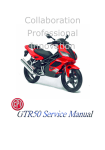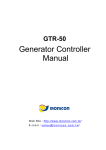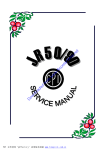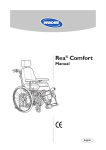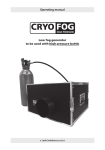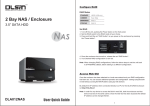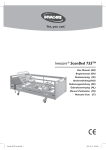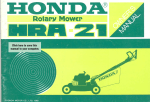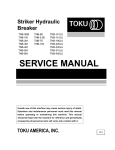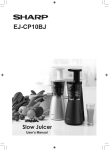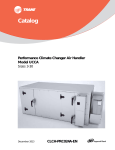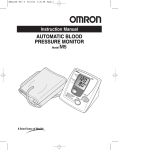Download GTR 50 SERVICE MANUAL
Transcript
GTR 50 SERVICE MANUAL CONTENT PREFACE.....................................................................................1-1 TROUBLE SHOOTING……………….….................................2-1 2-6 ENGINE REMOVALE INSPECTION......................................3-1 3-2 LUBRICATION SYSTEM………………..…............................4-1 4-2 FUEL SYSTEM………………………………............................5-1 5-4 CYLINDEER HEAD-CYLINDER PISTON.........……............6-1 6-5 TRANSMISSION SYSTEM………...........................................7-1 7-6 CRANKSHAFT-CRANKCASE...................…..........................8-1 8-4 A.C.GENERATOR......................………...........……......……..9-19-2 ELECTRIC SYSTEM………………………………………….10-110-4 THE CONTENTS OF THIS MANUAL PROVIDE THE SERVICE INFORMATION FOR CPI \GTR50. MOST CHAPTERS START WITH A SYSTEM OR ASSEMBLY ILLUSTRATION AND SPECIFICATIONS THE FOLLOWING PAGES GIVE DETAIL PROCEDURES. IF YOU DO NOT KNOW WHAT THE SOURCE OF THE TROUBLE IS, PLEASE GO TO THE TROUBLESHOOTERS FOR ADDITIONAL HELP. ALL THE CONTENTS OF THIS MANUAL ARE BASED ON THE LATEST MODEL INFORMATION CPI RESERVES THE RIGHT TO MAKE CHANGE AT ANY TIME WITHOUT NOTICE AND WITHOUT ANY RESPONSIBILITY OR ENGAGEMENT ON OUR PART. TROUBLE SHOOTING ENGINE WILL NOT START OR IS HARD TO START PROBABLE CAUSE CHECK IF FUEL REACHES CARBURETOR FUEL DOES NOT REACH CARBURETOR (1) NO FUEL IN TANK (2) CLOGGED FUEL LINE BETWEEN FUEL TANK AND CARBURETOR (3) CLOGGED FUEL VALVE 1 (4) CLOGGED FUEL TANK CAP FUEL REACHES CARBURETOR BREATHER HOLE REMOVE SPARK PLUG WEAK OR NO SPARK AND TEST SPARK (1) FAULTY OR FOULED PLUG (2) FAULTY C.D.I. (3) BROKEN OR SHORTED HIGH 2 TENSION CORD GOOD SPARK (4) FAULTY IGNITION SWITCH (5) INCORRECT IGNITION TIMING TEST CYLINDER COMPRESSION LOW COMPRESSION (1) ENGINE NOT CRANKED (2) NO VALVE CLEARANCE (3) VALVE STUCK OPEN (4) WORN CYLINDER AND PISTON 3 RINGS NORMAL COMPRESSION (5) BLOWN CYLINDER HEAD GASKET (6) FLAW IN CYLINDER HEAD (7) INCORRECT VALVE TIMING (8) BURNED VALVE START ENGINE ENGINE FIRES ENGINE FIRES, BUT DOES NOT START 4 (1) CHOKE VALVE OPEN (2) CARBURETOR PILOT SCREW OPEN (3) AIR LEAKING THROUGH IN TAKE PIPE (4) INCORRECT IGNITION TIMING REMOVE SPARK PLUG WET PLUG 5 DRY PLUG 6 START ENGINE WITH CHOKE CLOSED (1) FLOODED CARBURETOR (2) CHOKE VALVE CLOSED ENGINE LACKS POWER FLOW PATH BAD SITUATION RAISE WHEELS OFF WHEELS DO NOT GROUND AND SPIN SPIN FREELY WHEELS SPIN 1 FREELY CHECK TIRE INCORRECT TIRE PRESSURE PRESSURE 2 NORMAL PRESSURE RAPIDLY ACCELERATE FROM LOW TO 3 SECOND ACCELERATES REV UP GRADUALLY 4 ENGINE SPEED INCREASES CHECK IGNITION TIMING 5 CORRECT TIMING CHECK VALVE CLEARANCE CORRECT VALVE 6 CLEARANCE DOES NOT ACCELERATE WITH ENGINE SPEED RAISED PROBABLE CAUSE (1) DRAGGING BRAKE (2) FAULTY WHEEL BEARING (3) OVERTIGHTENED DRIVE CHAIN (4) WHEEL BEARING NOT LUBRICATED PROPERLY (1) PUNCTURED TIRE (2) FAULTY TIRE VALVE (1) SLIPPING CLUTCH (2) WORN OR UNEVEN CLUTCH FACINGS (3) CLUTCH PLATE WARPED ENGINE SPEED DOES (1) CARBURETOR CHOKE NOT INCREASE CLOSED (2) CLOGGED AIR CLEANER (3) CLOGGED FUEL LINE (4) CLOGGED FUEL TANK CAP BREATHER HOLE (5) CLOGGED MUFFLER INCORRECT TIMING INCORRECT TIMING ADJUSTMENT INCORRECT VALVE (1) INCORRECT VALVE CLEARANCE (2) WORN VALVE SEAT TEST CYLINDER COMPRESSION NORMAL 7 COMPRESSION LOSS OF COMPRESSION (1)VALVE STUCK OPEN (2) WORN CYLINDER AND PISTON RINGS (3) BLOWN CYLINDER HEAD GASKET (4) INCORRECT VALVE TIMING (5) FLAWS IN CYLINDER HEAD OR CYLINDER CHECK CARBURETOR CARBURETOR FOR CLOGGED CLOGGING 8 CARBURETOR NOT CLOGGED (1) CARBURETOR JETS CLOGGED REMOVE SPARK 9 PLUG (1) FOULED PLUG (2) INCORRECT HEAT RANGE PLUG PLUG FOULED OR DISCOLORED COLORED CHECK OIL LEVEL AND CONDITION OIL DIRTY OR LEVEL (1) LEVEL TOO LOW OR HIGH 10 CORRECT ENGINE INCORRECT (2) CONTAMINATED OIL OIL LEVEL REMOVE CYLINDER HEAD COVER AND 11 CHECK SUFFICIENTLY LUBRICATION CHECK IF ENGINE OVERHEATS 12 ENGINE DOES NOT OVERHEAT RAPIDLY ACCELERATE OR URN AT HIGH 13 SPEEDS ENGINE DOES NOT KNOCK INSUFFICIENTLY LUBRICATED (1) CLOGGED OIL PASSAGE (2) POOR OIL PUMP DELIVERY (1) EXCESSIVE CARBON IN COMBUSTION CHAMBER ENGINE OVERHEATS (2) INCORRECT FUEL (3) SLIPPING CLUTCH ENGINE KNOCKS (1) WORN PISTON OR CYLINDER (2) MIXTURE TOO LEAN (3) INCORRECT FUEL (4) EXCESSIVE CARBON IN COMBUSTION CHAMBER (5) LGNITION TIMING TOO EARLY POOR PERFORMANCE AT IDLE AND LOW SPEEDS FLOW PATH BAD SITUATION PROBABLE CAUSE CHECK IGNITION TMING AND VALVE (1) INCORRECT TIMING CLEARANCE INCORRECT TIMING ADJUSTMENT 1 CORRECT TIMING AND CLEARANCE (2) INCORRECT VALVE AND CLEARANCE CLEARANCE CHECK CARBURETOR PILOT SCREW 2 ADJUSTMENT CORRECTLY ADJUSTED INCORRECTLY ADJUSTED CHECK FOR AIR LEAKS 3 NO AIR LEAKS REMOVE SPARK PLUG AND TEST 4 SPARK AIR LEAKS WEAK OR INTERMITTENT SPARK (1) MIXTURE TOO LEAN (2) MIXTURE TOO RICH (1) FAULTY CARBURETOR PACKING (2) CARBURETOR NOT SECURELY TIGHTENED (3) FAULTY INTAKE PIPE GASKET (1) FAULTY OR FOULED PLUG (2) FAULTY C.D.I. (3) MAGNET AT FAULT POOR PERFORMANCE AT HIGH SPEED 1 FLOW PATH CHECK IGNITION TIMING AND VALVE CLEARANCE CORRECT TIMING AND CLEARANCE BAD SITUATION (1) INCORRECT TIMING INCORRECT TIMING ADJUSTMENT AND CLEARANCE (2) INCORRECT VALVE CLEARANCE DISCONNECT FUEL LINE AT CARBURETOR AND CHECK FOR RESTRICTED FUEL 2 CLOGGING FLOW UNRESTRICTED FUEL FLOW CHECK FUEL FILTER, FUEL VALVE AND 3 CARBURETOR JET FOR CLOGGING NOT CLOGGED REPLACE CARBURETOR MAIN JET 4 CONDITION IMPROVED CLOGGED CONDITION AGGRAVATED (1) JET SIZE TOO SMALL (2) IF CONDITION IS IMPROVED WITH SMALL JET: A) CLOGGED AIR CLEANER B) CHOKE NOT OPENED FULLY INCORRECT INCORRECT VALVE TIMING ADJUSTMENT WORN OR BROKEN SPRING FAULTY VALVE SPRING CORRECT CHECK VALVE SPRING TENSION 6 SPRING TENSION CORRECT (1) EMPTY FUEL TANK (2) CLOGGED FUEL LINE (3) CLOGGED FUEL TANK CAP BREATHER HOLE (4) CLOGGED FUEL PETCOCK (1) CLOGGED JET (2) CLOGGED FUEL FILTER (3) CLOGGED FUEL VALVE CHECK VALVE TIMING 5 PROBABLE CAUSE SMOKY EXHAUST FLOW PATH BAD SITUATION RUN MOTORCYCLE A LONG DISTANCE AT HIGH SPEED THIN EXHAUST BLACK SMOKE 1 EMITTED EMITTED RETURN THROTTLE GRIP QUICKLY WHITE SMOKE 2 EMITTED PROBABLE CAUSE (1) WORN CYLINDER AND PISTON RINGS (2) OIL LEVEL TOO HIGH (3) PISTON RINGS INCORRECTLY INSTALLED (4) FAULTY PISTON OR CYLINDER (5) FLAWS IN CYLINDER HEAD (1) WORN INTAKE VALVE GUIDE OR STEM (2) EXCESSIVE VALVE-TOGUIDE CLEARANCE POOR HANDLING 1 FLOW PATH IF STEELING IS HEAVY IF EITHER WHEEL IS WOBBLING 2 3 IF THE MOTORCYCLE PULLS TO ONE SIDE BAD SITUATION CHECK TIRE PRESSURE PROBABLE CAUSE (1) STEERING HEAD ADJUSTER TOO TIGHT (2) DAMAGED STEERING CONES OR STEEL BALLS (1) EXCESSIVE WHEEL BEARING PLAY (2) DISTORTED RIM (3) IMPROPERLY INSTALLED WHEEL HUB (4) SWING ARM PIVOT BUSHING EXCESSIVELY WORN (5) DISTORTED FRAME (6) IMPROPER DRIVE CHAIN TENSION OR ADJUSTMENT (1) MISAPPLIED SHOCK ABSORBER (2) FRONT AND REAR WHEELS NOT ALIGNED (3) BENT FRONT FORK (4) BENT SWING ARM ENGINE REMOVAL/ INSTALLATION 1. Open and remove the seat. 2. Remove the rear luggage case. 3 3.Remove the side cover. Remove the throttle valve from the carburetor. Disconnect the earth wire of engine. Disconnect the coil wire. Disconnect the A.C.G. wire. Disconnect the start motor wire. Disconnect the starter plunger wire. Disconnect the fuel & the vacuum tube. Disconnect the spark plug cap. Disconnect the rear brake cable. Remove the setting bolt of rear cushion. Remove the setting bolt of engine. Remove the engine. The installation sequence is essentially the reverse of removal. NOTE: Route all the wire and cable properly. Adjust the throttle cable free play. clearance. Adjust the rear brake free play. TORQUE TORQUE STANDARD SORTS TORQUE(kg-m) 5mm screw, nut 0.5 6mm screw, nut 1.2 8mm screw, nut 2.7 10mm screw, nut 4.0 12mm screw, nut 5.5 INNER OF ENGING ITEM Cylinder head bolt, A Cylinder head bolt, B EXH. pipe joint bolt Drive face nut A.C.G. nut Oil pump bolt Cylinder head cover bolt Spark plug AMOUNT DIAMETER(mm) TORUQUE(kgm) 2 8 3.0 2 8 3.0 2 8 0.9 1 1 2 2 17 17 6 10 3.5~4.0 3.5~4.0 0.8 1.5 1 12 1.8 REMARKS Stud bolt side Stud bolt side Spread on thread FRAME ITEM Shaft steering nut FR. Wheel axle nut RR. Wheel axle nut RR. shock absorber bolt (up) RR. shock absorber bolt (down) ENG. Hanger BRKT. Bolt AMOUT DIAMETER(mm) TORQUE(kgm) 1 10 4.5 1 12 6.0 1 16 9.0 1 10 3.0 1 8 3.0 1 10 5.5 LUBRIFICATION SYSTEM Remove luggage box & side covers. Disconnect the oil tube of oil pump (intake & output). Remove the oil pump control cable. Remove the setting bolt of oil pump. Remove the oil pump. Check the O-ring, gear & seal for wear or any damage. NOTE: Do not disassembly the oil pump body to prevent any damage. Coating some oil on the O-ring. Install the oil pump onto the crankcase. Connect the oil tube. Connect the oil pump control cable and adjust the clearance. LUBRIFICATION SYSTEM RELEASE THE AIR OF OIL PUMP Loosen the drain screw. Let the oil drain out in smoothly then tight the screw. NOTE: If the oil can not drain out in smoothly, it is mean some air still in the oil pump. FUEL SYSTEM Remove the seat. Remove the luggage box. Loose the carburetor cap of throttle valve. Remove the throttle valve from the carburetor. Remove the throttle valve from the throttle cable. THROTTLE VALVE DISASSEMBLY Remove the retainer and take out the jet needle clip from the throttle valve. INSPECTION Check the throttle valve and the jet needle surface of dirt, scratches or wear. CARBURETOR REMOVAL Remove the side cover Remove the luggage box ASSY. Remove the starter plunger wire. Remove the throttle cable. Remove the fuel tube from the carburetor. Loose the screw of the air cleaner band. Loose the bolts between the intake pipe & the carburetor. Remove the carburetor. Remove the carburetor and let it cool down by nature for thirty minutes. Check the current of air route as show. GOOD : PASSABLE NG :IMPASSABLE BLOW Connect a full charged battery to the starter plunger wore for five minutes. Check the current of route as show. GOOD : IMPASSABLE NG : PASSABLE BLOW FLOAT CHAMBER DISASSEMBLY Remove the setting screws. Remove the chamber cap. Remove the float setting bolt. Remove the float pin. Remove the float. Remove the float valve. Remove the main jet, slow jet, needle seat & air screw. Clean all the jet & all the hole by using high pressure air. FUEL HEIGHT INSPECTION Measure the height by using a gauge. STANDARD: 18.5㎜ CARBURETOR INSTALLATION The installation sequence is essentially the reverse of remove. Adjust the clearance of the throttle valve cable. Adjust the air screw. STANDARD : 1+1/2round Adjust the idle speed. STANDSRD: 1800±100 rpm REED VALVE REMOVAL Remove the carburetor. Remove the intake pipe. Remove the reed valve. REED VALVE INSPECTION Measure the height of reed valve stopper. STANDARD: 6.0-6.4㎜ Check the flatness of reed valve. SERVOCE LIMIT : 7.0㎜ REED VALVE INSTALLATION The installation sequence is essentially the reverse of removal. CYLINDER HEAD/ CYLINDER/ PISTON Put the right side of vehicle on the ground. Attention! Please have a protected pad on the proper location of the ground to avoid crash or damage of plastic parts. Remove the spark plug cap. Remove the exhaust muffler. Remove the cylinder air shrouds. Remove the spark plug. Remove the setting bolts of cylinder head. Remove the cylinder head. Cylinder head flatness inspection. SERVICE LIMIT: 0.05㎜ CYLINDER REMOVAL Remove the cylinder head. Remove the cylinder. Remove the cylinder gasket. NOTE: Clean all the material of cylinder gasket with a scraper. PISTON REMOVAL Remove the piston pin clip. NOTE: Do not let the clip fall into the crankcase. Remove the piston pin. Remove the piston. PISTON / PISTON RING INSPECTION Remove the piston rings. Clean the grooves for carbon deposit completely. NOTE: Do not damage the piston ring during removal. Cylinder block flatness inspections: SERVICE LIMITS: 0.05㎜ CYLINDER INSPECTION Inspect the cylinder bore for wear or damage. Measure the cylinder I. D. at three places; top, middle and bottom of piston travel and in two directions at right angle to each other. SERVICE LIMITS: 40.2㎜ Calculate the piston-to-cylinder clearance. SERVICE LIMITS : 0.1㎜ Calculate the taper and out of round. SERVICE LIMITS: Out of round: 0.05㎜ Taper: 0.05㎜ Measure piston pin bore O. D. at a point 10㎜ from the bottom. STANDARD:39.95㎜ Measure piston pin bore I. D. in two directions at right angle to each other. STANDARD: 12.05㎜ Measure the piston pin O. D. at the front, center and rear and in two directions across from each other. STANDARD: 12.05㎜ Insert each piston ring into cylinder with the piston and measure the ring end gap in the cylinder to a point 10㎜ (0.04 in) from the bottom. STANDARD: Top / Second: 0.15~0.35㎜ Connecting rod small end inspections: SERVICE LIMITS: 14.06㎜. PISTON RING INSTALLATION Clean the piston ring grooves thoroughly. Install the piston ring. NOTE: Avoid piston and piston ring damage during installation. All ring should be installed with the mark facing up. PISTON INSTALLATION Install the piston, piston pin and new piston pin clips. NOTE: Piston the “EX” mark on the exhaust side. Do not let the piston pin clip fall into the crankcase. Install the cylinder gasket. Coat the cylinder and piston ring with the engine oil. Install the cylinder. COMPRESSION PREASURE TEST NOTE: Worm up the engine before test. Remove the seat & luggage box. Remove the spark plug cap & spark plug. Turn the throttle grip with the throttle valve on the upset position. Start the motor for 7-8 seconds for test the pressure TRANSMISSION SYSTEM Remove the start kick. Remove the crankcase cover. Remove the dowel pin. Remove the kick pinion with the kick friction spring. Disconnect the kick start spring. Remove the cir-clip & plate washer. Remove the kick spindle bush. Remove the spindle & the spring. Remove the O-ring. Remove the setting nut of clutch outer. Remove the clutch outer & driven pulley. Remove the drive belt. Remove the setting nut of driver face. Remove the conical spring washer & the one way clutch. Remove the claw washer, driver face & plat washer. Remove the movable drive face & collar. Remove the starter clutch & starter wheel. Remove the gear boss. Remove the plat washer. Remove the idle gear plate. Remove the idle gear. DRIVEN BELT INSPECTION Inspect the belt for crack wear or any damage measure the width of belt. SERVICE LIMIT : 14.60㎜ WEIGHT ROLLER INSPECTION Measure the weight roller O. D. SERVICE LIMIT : 14.5㎜ 14.60mm MOVABLE DRIVEN FACE INSPECTION Measure the movable driven face I. D. STANDARD: 20.5㎜ BOSS OF DRIVEN FACE INSPECTION Measure the boss I. D. SERVICE LIMIT :17.90㎜ CLUTCH OUTER INSPECTION Measure clutch outer I. D. STANDARD : 109.5㎜ CLUTCH LINING INSPECTION Measure the lining thickness. STANDARD : 1.0㎜ Fix the driven pulley in a compressor. Remove the special nut (28㎜). Release the compressor. Remove the driven plat assy. DRIVEN FACE SPRING INSPECTION Measure the spring free leant. STANDARD : 89.5㎜ DRIVEN FACE INSPECTION Measure the drive face O. D. STANDARD : 33.94㎜ MOVABLE DRIVEN FACE INSPECTION Measure the movable driven face I. D. STANDARD : 34.06㎜ Final transmission gear removal. Drain the gear oil Remove the mission cover. Remove mission cover gasket & dowel pin. Remove final shaft & final gear. Remove counter shaft. FINAL GEAR TRANSMISSION GEAR INSPECTION Inspect the gears & shafts for wear or damage. CRANKSHAFT/ CRANKCASE Remove the crankcase setting bolts. Remove the right crankcase from the left crankcase by using a pulley. Remove the crankcase from the left crankcase by using a pulley. Remove the bearing of crankcase by using a bearing pulley. CRANKSHAFT INSPECTION Measure the connecting rod big end side clearance with a feeler gauge. STANDARD: 0.55 ㎜ Measure the connecting rod big end radial clearance at two different point across from each other. STANDARD:0.05㎜ Place the crankshaft on a stand or V-blocks and measure the run out using a dial gauge. Actual bend is 1/2 of total indicator reading. STANDARD: 0.1㎜ Check the crankshaft bearing play. If they are noisy or have recessive play, replace a new one. CRANKCASE INSTALLATION Install the crankshaft bearing into the left crankcase. Install the crankshaft bearing into the right crankcase. Install the crankshaft into the left crankcase. Install the oil seal into the left crankcase. Install the dowel pins. Install the right crankcase. Install the oil seal into the right crankcase. Install the setting bolts of crankcase. TORQUE : 1.0㎏-m. A.C. GENERATOR Remove the seat & luggage box. Remove the side covers. Remove the cylinder air should. Remove the fly wheel setting nut by using a “Y” fixer. Remove the fly wheel by using a pulley. Disconnect the wires of A. C. G. Remove the A. C. G. setting bolts. Remove the A. C. G. A.C. G. INSTALLATION The installation sequence is essentially the reverse of removal. ALTERNATOR A.C.G. AND REGULATOR CHECK (for Tracker and GTR 50) ALTERNATOR A.C.G. Set instrument range to 2000 Ω Surge( coil resistance) : within 650 to 850 Ω; take red/black wire as positive and connect negative to body of A.C.G. Pulsor (ignition resistance) : within 80 to 120 Ω; take blue/yellow (white/red for GTR) wire as positive and connect negative to body of A.C.G. If not within range : malfunction REGULATOR Set instrument range to 200 Ω Take black wire as positive Black to red : Black to pink : Black to yellow : Black to green : 2.68Ω 2.14Ω 1.27Ω .556Ω Must have those values if not malfunction.



































